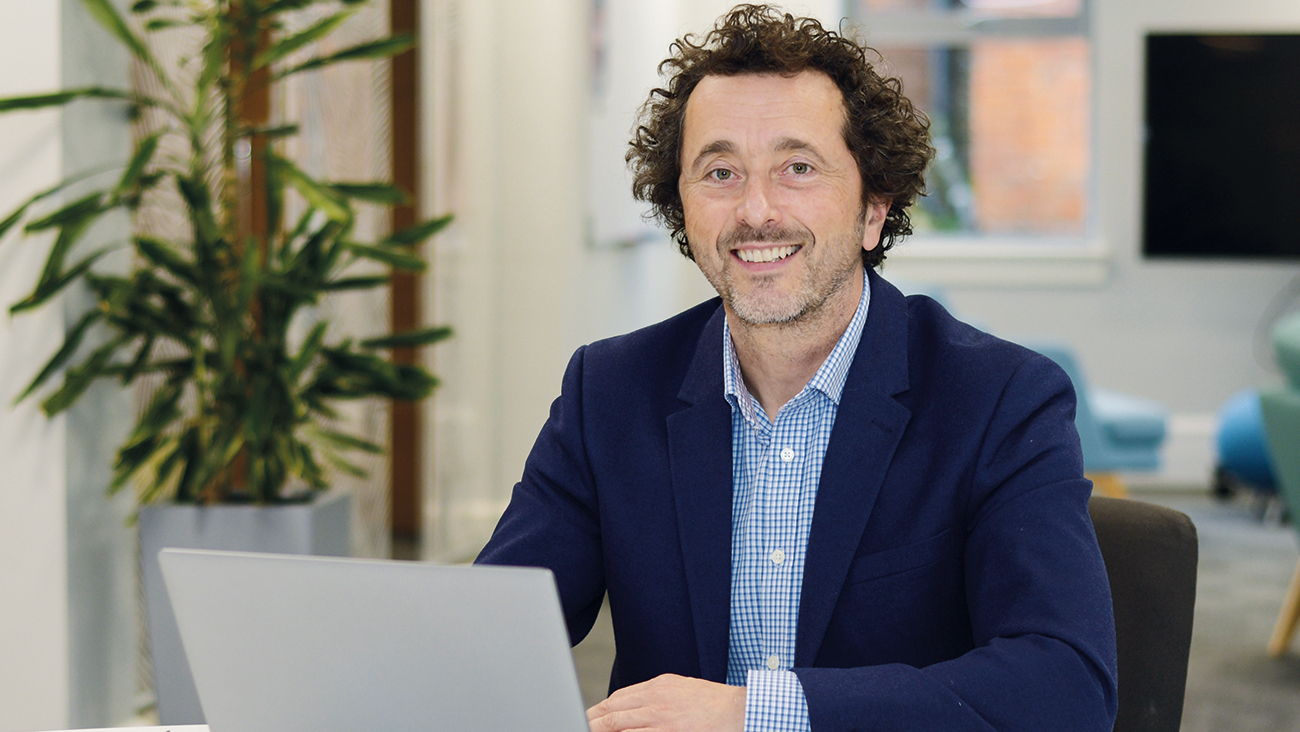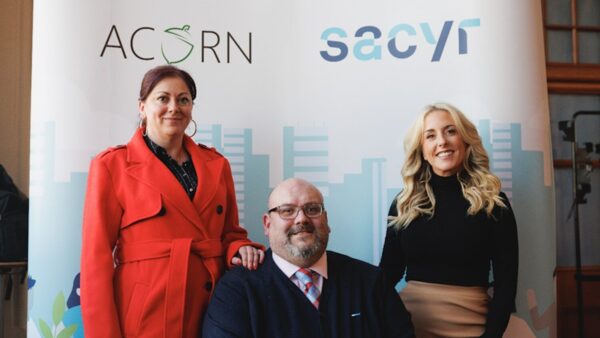
Dr Graeme Larsen FCIOB, associate dean (sustainability) at the University College of Estate Management, on opening up the current discourse around healthy communities.
What are you working on at present?
I am working on a number of initiatives, with the key focus being strategic and operational sustainability. This relates to the development of new taught programmes at the University College of Estate Management (UCEM), along with research projects, publications and the organisation of the International Council for Research and Innovation in Building and Construction (CIB) Tri-Annual World Building Congress.
With my core team, I recently developed and launched an innovative new MSc programme, entitled Innovation in Sustainable Built Environments (IiSBE). That programme is IEMA accredited and can also be undertaken through an apprenticeship route. It looks to really challenge the way professionals think about sustainability.
We are now working on the development of other programmes to further meet the needs of the sector around sustainability.
We have a number of research projects resonating with the theme of sustainability and United Nations Sustainable Development Goals. These are with a range of partners, looking at issues from how sustainability is reshaping project management process to knowledge co-production between consultants and clients to create innovative sustainability strategies.
CV: Dr Graeme Larsen
2021 to present – Associate dean (sustainability), University College of Estate Management
2020 to present Visiting professor, RMIT University, Australia
2001-21 – Associate professor – school director of post graduate research studies, University of Reading
Site and project manager for large international contracting companies
One is an Innovate UK-funded Knowledge Transfer Partnership (KTP), valued at £178,000, which I am leading for UCEM, partnering with the King’s Foundation and number of key sector stakeholders. That project is looking at regional building hubs, providing support for SMEs to build better, healthier communities through placemaking.
I am always keen to hear from sector practitioners wishing to explore opportunities and understand how we as academics can contribute.
Why is it important to the construction industry now?
The new MSc IiSBE is important because we need to stop doing the same thing and then wondering why things aren’t improving.
The MSc IiSBE looks to target decision-makers (those aspiring or those seeking additional legitimacy) to challenge a range of assumptions, really questioning what we are doing and why, drawing on environmental philosophy while aligned with a
socio-technical systems perspective.
After all, neither isolated technical or management approaches can address our sustainability challenges. The MSc IiSBE gives legitimacy for instigating change, seeing it as an opportunity and understanding sustainability through a fresh lens.
The feedback from students (often already chartered and in fairly senior positions) has been fantastic, welcoming the new concepts and, in their words, totally reframing what they thought they knew about sustainability.
In terms of the research, the KTP with the King’s Foundation is opening up the current discourse around healthy communities, often largely dominated by the national housebuilders. The research aims to support SMEs and stakeholders giving them a stronger collective voice. SMEs have much to offer our sector, especially from a regional perspective, yet they have been in decline for a number of years.
Are you working with any construction companies so they can apply your research/innovation on their projects?
I am, yes, along with a number of colleagues at UCEM. The KTP project mentioned earlier involves a cross-section of stakeholders involved in the sector, from SME construction companies, to suppliers, land owners, planners, financiers and developers.
I am also working with a key multidisciplinary consultancy providing sustainable solutions, funded by the Harold Samuel Research Prize, looking at how new and innovative strategies can be co-created with specific clients to meet their bespoke needs.
I am really mindful of the importance of rigour in our research but that must always be tensioned against ‘relevance’ for the sector. It’s essential the sector is always engaged in the research process and the outcomes have practical application.
What areas of research do you think are most crucial for academics to focus on now to meet industry challenges?
The structural nature of the sector is a key theme. Few would perhaps design a sector, drawing upon a range of different industries, in the manner in which the construction sector is structured today.
The professional and craft silos ‘we’ have created, nurtured and often defend seem, at times, to adversely affect our desired vision of a better sector. Then we have the production model of build, sell, build, sell, and that needs unpacking while looking to create alternative business models that are perhaps more responsible and sustainable.
Perhaps a final element is the manner in which the activity of the construction sector, and what it produces, has been woven into a number of financial products for our society to function, rather than serving their initial purpose. Much of this relates to understanding the transitions of a sector as it seeks to respond to a changing world.
If you’re interested in academic membership visit www.ciob.org/membership/become-a-member/educator.








